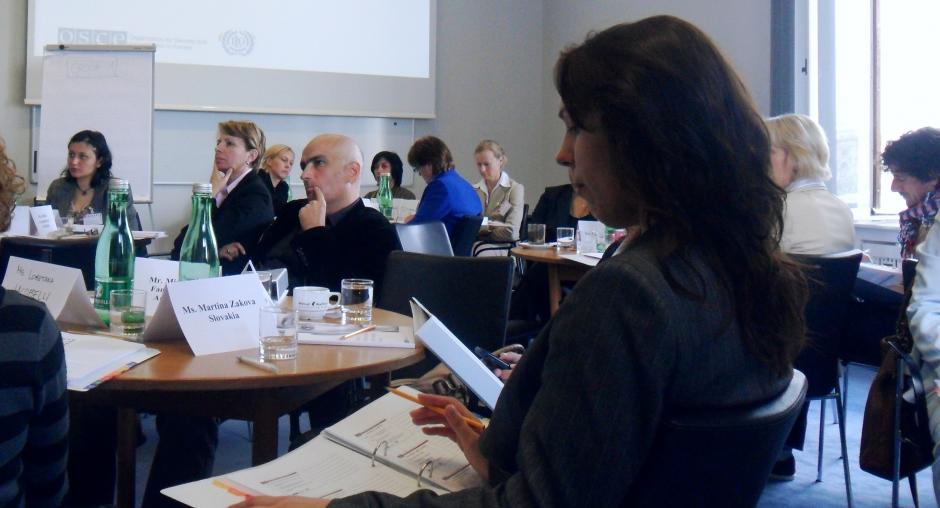OSCE-supported seminar focuses on challenges faced by female migrant workers

VIENNA, 17 May 2011 - Raising awareness of the challenges faced by female migrant workers in the OSCE region and the need for more appropriate policy responses are the focus of an OSCE-supported training seminar which started in Vienna today.
The two-day course is organized by the Office of the Co-ordinator of OSCE Economic and Environmental Activities in co-operation with the Austrian Government, the Government of Kazakhstan, the OSCE Office for Democratic Institutions and Human Rights, the International Organization for Migration (IOM) and the International Labour Organization (ILO).
The event brings together around 20 participants including mid-level government officials and policymakers from South-Eastern Europe and the European Union dealing with labour migration policy analysis, development, review and implementation, as well as migration experts and representatives of labour unions and employers' organizations. The training is structured around group discussions and case studies to make it as participatory and interactive as possible.
Goran Svilanovic, the Co-ordinator of OSCE Economic and Environmental Activities, said: “Effective implementation of gender-sensitive labour migration policies is essential for all OSCE participating States since it can help them realize hitherto untapped economic gains which are particularly needed in these times of crisis. In addition, improved conditions for female labour migrants would also have a positive impact on overall stability and security.”
Tanja Dedovic, Liason and Special Programme Co-ordinator of IOM Vienna, said: “This training seminar highlighting the need for more gender-sensitive labour migration policies in countries of origin and destination is very timely. Not only due to the so-called feminization process of migration, but also because the demand for female labour migrants in countries of destination is constantly growing, and effective labour migration policies that ensure an orderly process need to be in place”.
Gloria Moreno Fontes Chamartín, Senior Labour Migrant Specialist at ILO, emphasized that gender-sensitive labour migration policies should include, among other elements, “ensuring equality of treatment and non-discrimination for women and men migrant workers in the workplace, safe recruitment, and better integration in workplaces”.
The event is the third and last in a series of training seminars on gender and labour migration, based on the OSCE's publications, Guide on Gender-Sensitive Labour Migration Policies and the Trainer's Manual on Gender and Labour Migration. The previous events took place in Astana and in Helsinki in September and April 2010 respectively.
